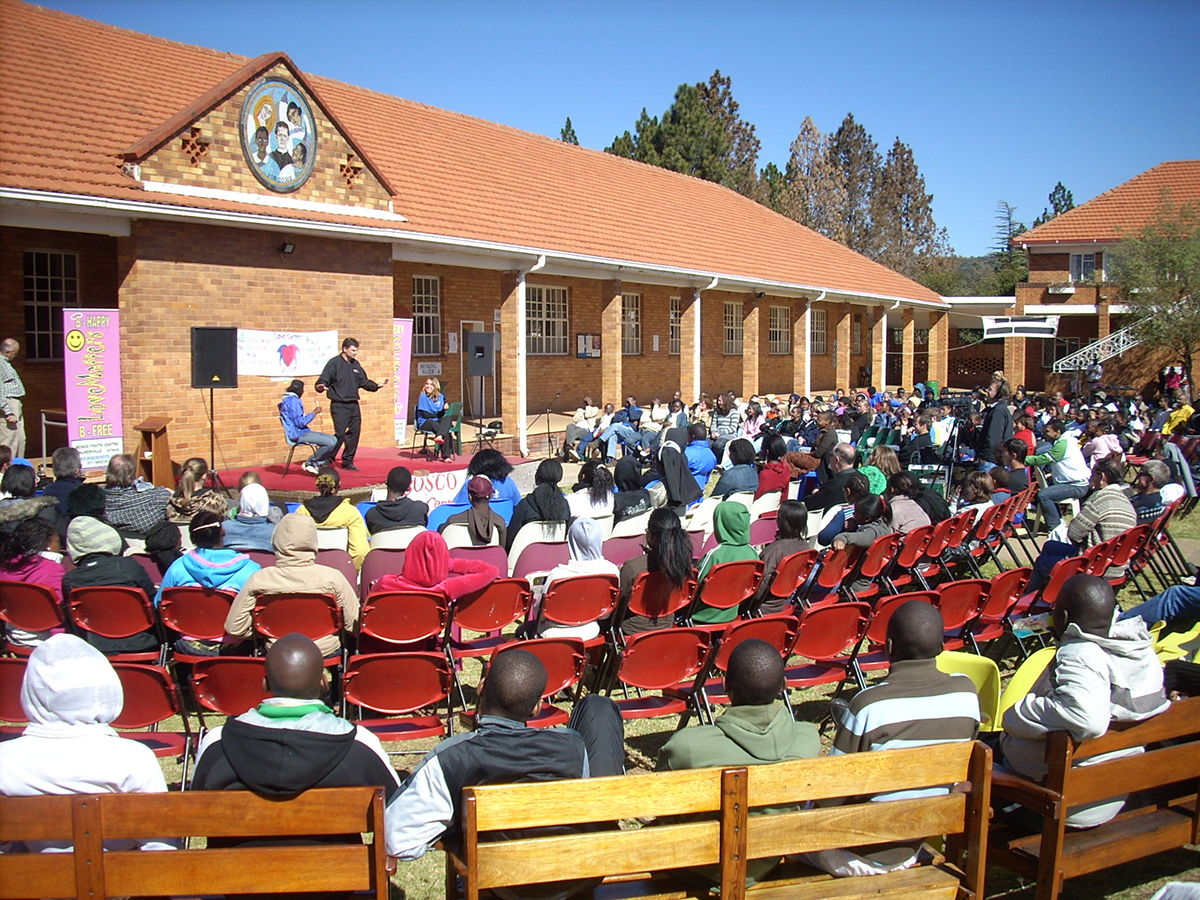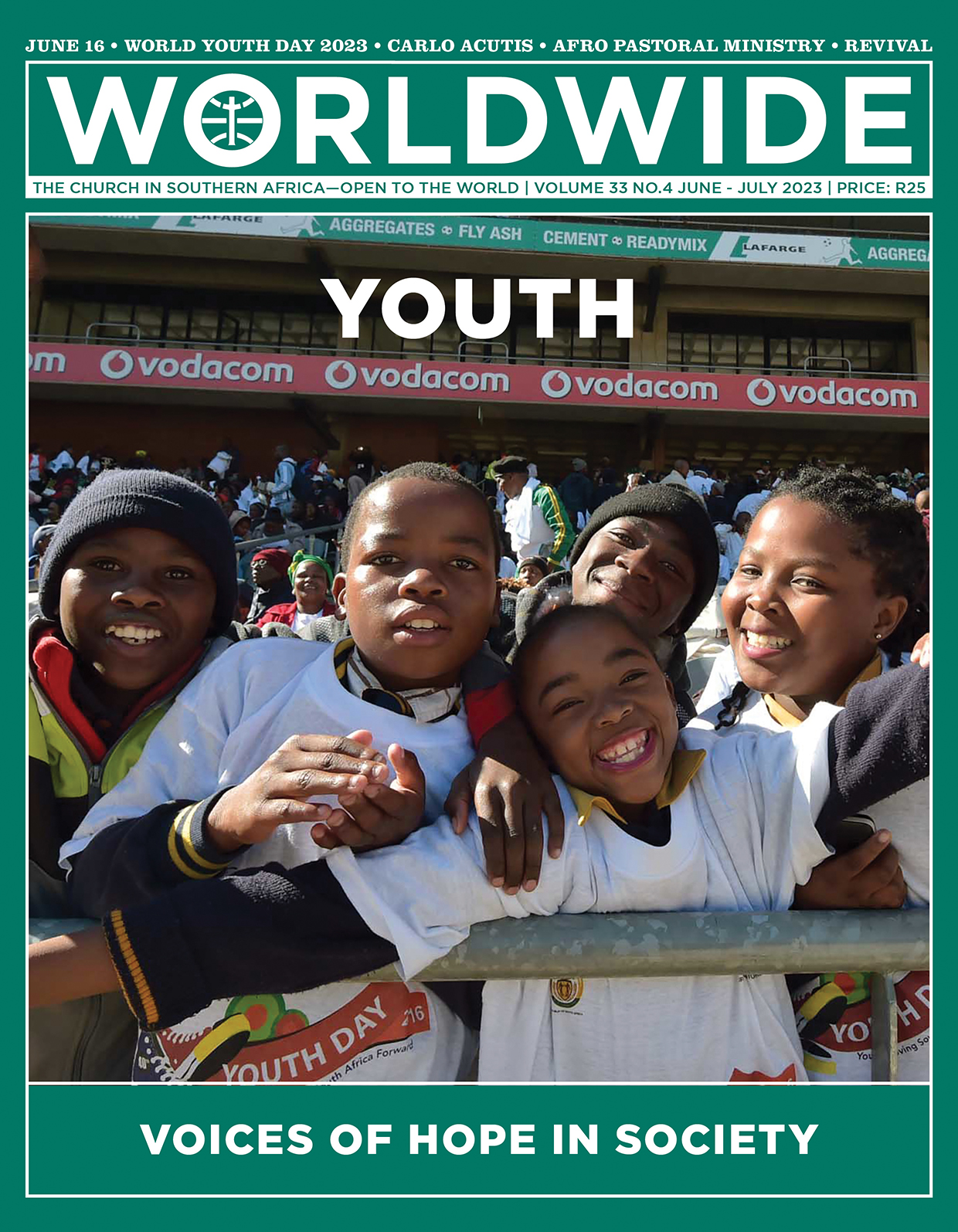
YOUTH: VOICES OF HOPE IN SOCIETY
The front cover image shows youngsters commemorating Youth Day at Orlando Stadium in Soweto, the same location where an uprising against the use of Afrikaans as a vehicular language of education took place in 1976.
Some might see June 16 only as a public holiday, nevertheless, gratitude goes to those who strived on behalf of the youth for an inclusive and better education. Many youths today still face great challenges and need strong support in order to receive an integral formation which prepares them for a bright future.
SPECIAL REPORT • YCS
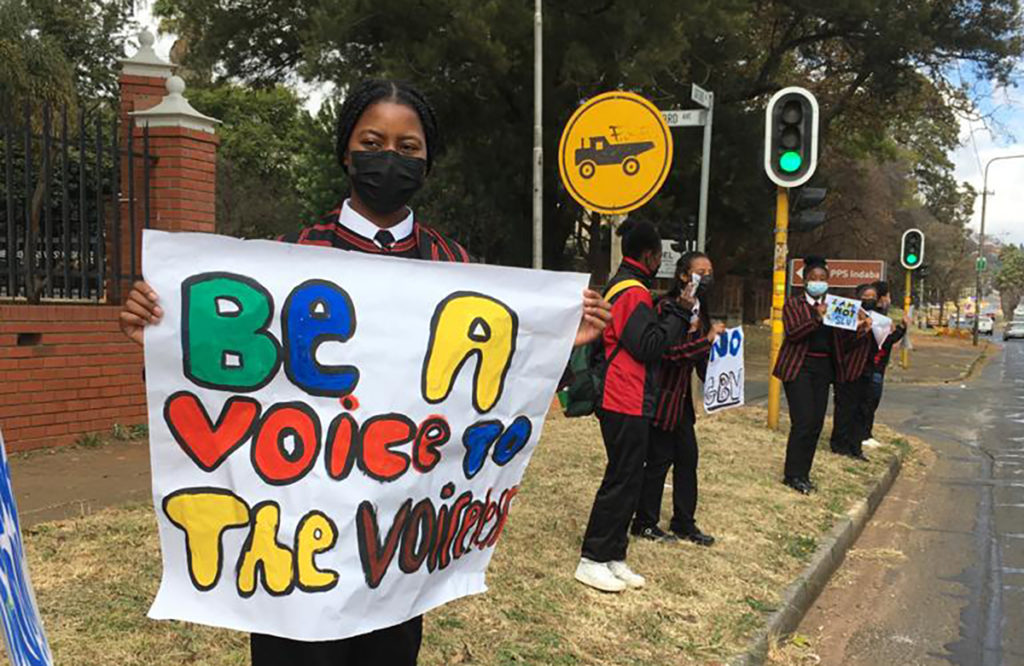
The Revival of the Young Christian Students Movement
The Young Christian Students (YCS) movement played an important role in the struggle for liberation in South Africa as an independent, non-racial and ecumenical organisation. It grouped students at various academic levels who strived for free and equal education. Fr Mokesh has now passionately taken the challenging effort of reviving the movement
BY Fr Mokesh K. Morar | Johannesburg
“DIT IS ‘n onbegonne taak!” (it is an almost impossible task!) exclaimed Fr Albert Nolan (1934 – 2022), National Chaplain of YCS Movement in South Africa from the mid-1970s as he heard about reviving YCS. For many, the era of YCS had ended with the adoption of the South African Constitution in 1996. However, Fr Nolan and others, including former YCS members, were supportive of this difficult project; a former YCS Chaplain exclaimed: “We needed it now even more than before 1994!”
Origins of YCS in South Africa
Fr Joseph Cardijn started Young Christian Workers (YCW) in Belgium in the mid-1920s. In South Africa, YCS traces its roots to the founding of YCW by Erick Tyacke in 1949 and Fr Albert Danker, OMI. The latter started YCW groups in Catholic parishes around Durban and became its National Chaplain. The junior version of those parish-based groups was known as “Pre-YCW.” From these groups, Gladwell Dlamini, YCW organiser, contacted International-YCS (IYCS) in Paris to start a YCS group in Johannesburg.
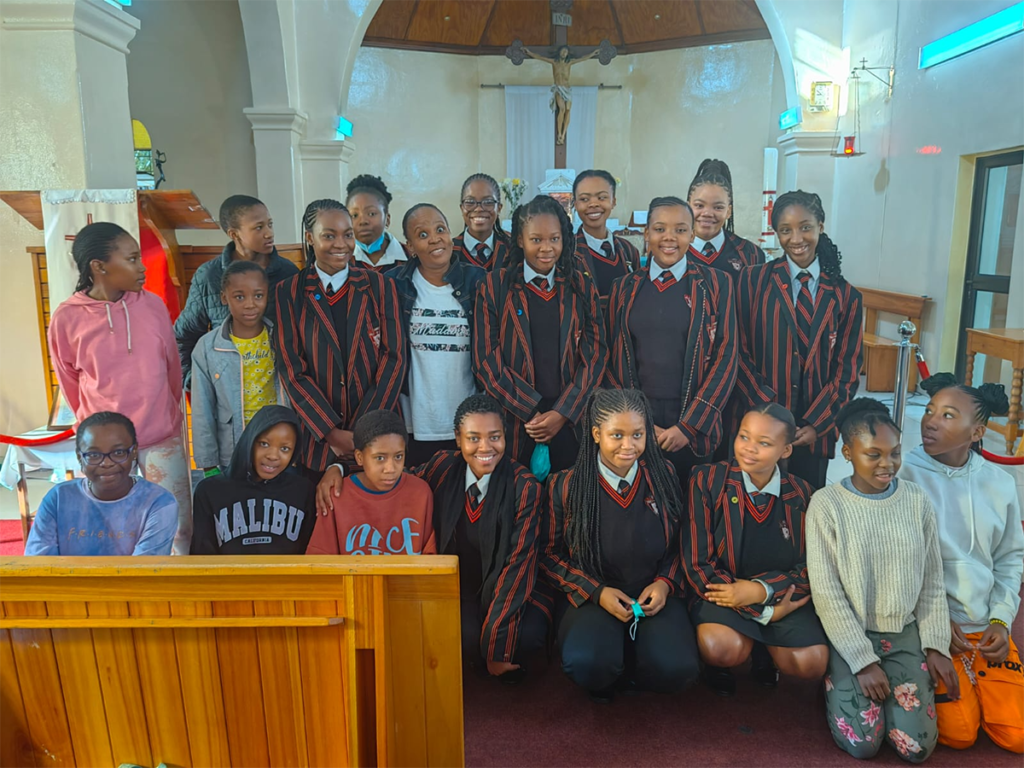
In the late 1960s, the YCW and YCS National Teams started Thrust magazine which looked critically at the youth culture and education. By 1972, the YCS movement, with about 2 000 members, was well-established in the main cities of the country.
The National Catholic Federation of Students (NCFS) saw the disaffiliation of some Catholic Societies (CathSocs) at Black University campuses as the Black Consciousness Movement had grown by 1975. A commission was set up with members of NCFS to evaluate the relevance of the organization. They concluded that it was still playing a role to draw Catholic students together, but that there was a need to create a smaller structure for those who desired deeper social commitment. They used the See-Judge-Act (S-J-A) methodology which looks at reality, confronts it with the Word of God and gives a response of faith to it. After the Durban strikes of 1973, a change of direction was visible, from charity outreach to a deeper social analysis.
YCS became known for its meetings to raise awareness about the evils of Apartheid
After a meeting in November 1976 at Modderpoort—then province of the Orange Free State—between leaders of YCS and YCW they saw the need to separate the two movements and grant them their own autonomy. Consequently, on 31 January 1977, representatives from the S-J-A groups from the universities of Wits, Pretoria, Cape Town, Stellenbosch and Pietermaritzburg met in Johannesburg, where they decided to become YCS and to seek affiliation to IYCS. Soon afterwards, the S.A. Catholic Bishops Conference recognised YCS as an independent Catholic movement—distinct from YCW—though ecumenical (also distinct from CathSoc, known later as the Association of Catholic Tertiary Students/ACTS).
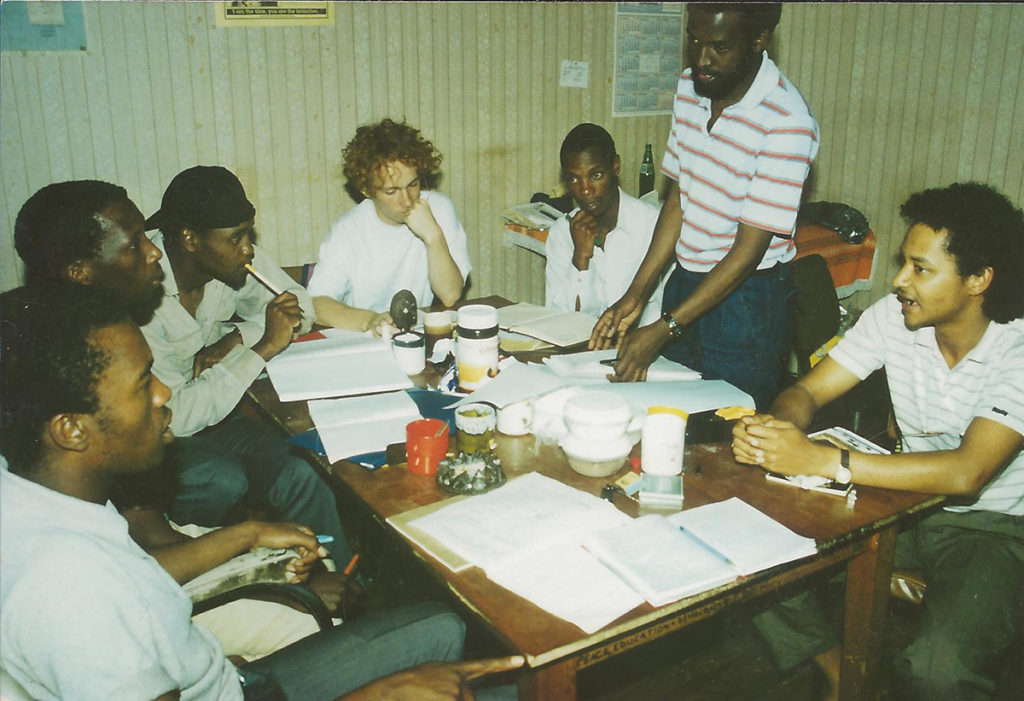
YCS became known for its meetings to raise awareness about the evils of Apartheid. Several of its leaders, including Fr Nolan, had to go into hiding. Chris Langeveldt and Mike Deeb took over as national chaplains under difficult conditions. YCW Chaplains such as Sr Bernadette Ncube ( 2012) spent long periods in solitary confinement and Fr Smangaliso Mkhatshwa (YCS Chaplain) were tortured in detention.
The Post-1994 era
Fr Mkhatshwa and others from the faith sector took up prominent roles in the new government and society hoping to bring light to the difficulties which SA society was suffering as a result of colonialism and apartheid. As Reinold Niebuhr—founding editor of the publication Christianity and Crisis wrote in his book (1944): “The children of light must be armed with the wisdom of the children of darkness, but remain free from their malice. They must have this wisdom in order that they may beguile, deflect, harness and restrain self-interest, individual and collective, for the sake of the community”.
YCS became known for its meetings to raise awareness about the evils of Apartheid
Sadly, many South Africans are discovering that this is a long and arduous journey through the desert under the shadow of the golden calf and it appears that many leaders are only cunning in keeping us in the dark. However, Jesus said: “Be gentle as doves and cunning as snakes” (Mt 10:16). Then, the question is raised: Where are our (faith-based) youth movements which were so vibrant against apartheid? What about YCS?
Revitalizing YCS
With the support of Bishop Jan de Groef of Bethlehem Diocese, school principals and others, we saw the need of responding positively to the challenge of reviving YCS in 2013. Fortuitously, there was one YCS group to start with. This was at Holy Family College (HFC), Parktown Convent, Johannesburg, aided by a teacher and former YCS member. The HFC principal assisted with contacts of school principals at Immaculata High School (HIS) in Diepkloof, McAuley House and St Martin de Porres High School and Orlando West in Soweto. YCS organized a weekend camp on their own in Magaliesberg. Kamohelo Qhala deputy student leader of IHS relates: “We initiated various activities: school clean-ups, charity drives reaching over 90 children in three years.” YCS members learnt how to be “champions of social justice.” Kgothatso Malema of IHS and a member of YCS since 2016 says “YCS is a place of growth and leadership. Most memorable is a camp we had in QwaQwa (Bethlehem Diocesan shrine) where we learnt about the national water crisis. The greatest opportunities I got were to be a Secretary General and Project Manager at North-West University, Vaal campus, organising big events, e.g. the Sunset Picnic in September 2021, catering for over 100 people and raising funds for students. YCS has proven several times that I’m capable of handling situations out of my comfort zone”. Proof indeed that given the chance young people are capable of much, much more than what many would give them credit.
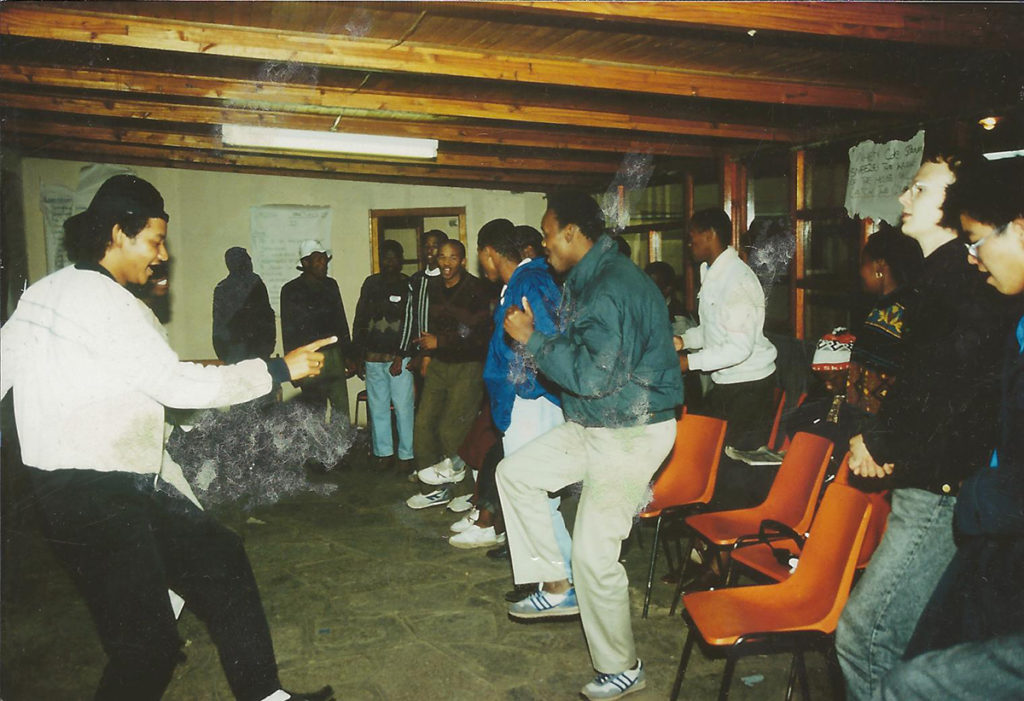
Socially oriented movement
Lerato Makhalemele, prefect and choir leader of McAuley House School in 2019, now social work student at Wits, says: “YCS is a student-led movement and I was part of raising money for sanitary towels for young girls, as well as being an active participant of a committee called Kwanele-Kwanele which advocates against violence towards women and children”. Bonke Msib says: “The movement shaped me into an authentic, creative and fearless young leader. We planned and executed, with no help from an adult, how to work together”.
Delegates from McAuley, HFC and a teacher from St Martin’s attended the IYCS Global Council in Tagaytay, Philippines whilst a further two delegates attended the IYCS-Africa in Rwanda and shared their experiences with other students and parents. Today these delegates are part of the “Support YCS group.”
“The movement shaped me into an authentic, creative and fearless young leader”
Some of the former YCS members who are now at tertiary institutions assisted in the revival process. They were committed as they saw the importance of YCS in building ethics and strong leadership in society. One of them, Zanele Fengu of McAuley YCS, is finishing her Master of Law degree in Human Rights and Democratisation in Africa at the University of Pretoria. She is the legal researcher for Corruption Watch, the South African chapter of Transparency International. Zanele is adamant that YCS went a long way in helping to shape her passion for social justice and encouraged her to become an active participant in that agenda. All the school principals and teachers praised the works of YCS including their outreach projects in Soweto, Orange Farm and Bophelong in Vanderbijlpark, in what is today termed: “young servant leadership”. One parent remarked: “I cannot recognize my own child. He used to be very naughty, and now he is such a responsible leader since joining YCS!” Two new groups were also started in 2023 with grade 7 students in St Angela, Dobsonville and St Matthew’s near Regina Mundi Church—with the support of the school principals, both religious sisters.
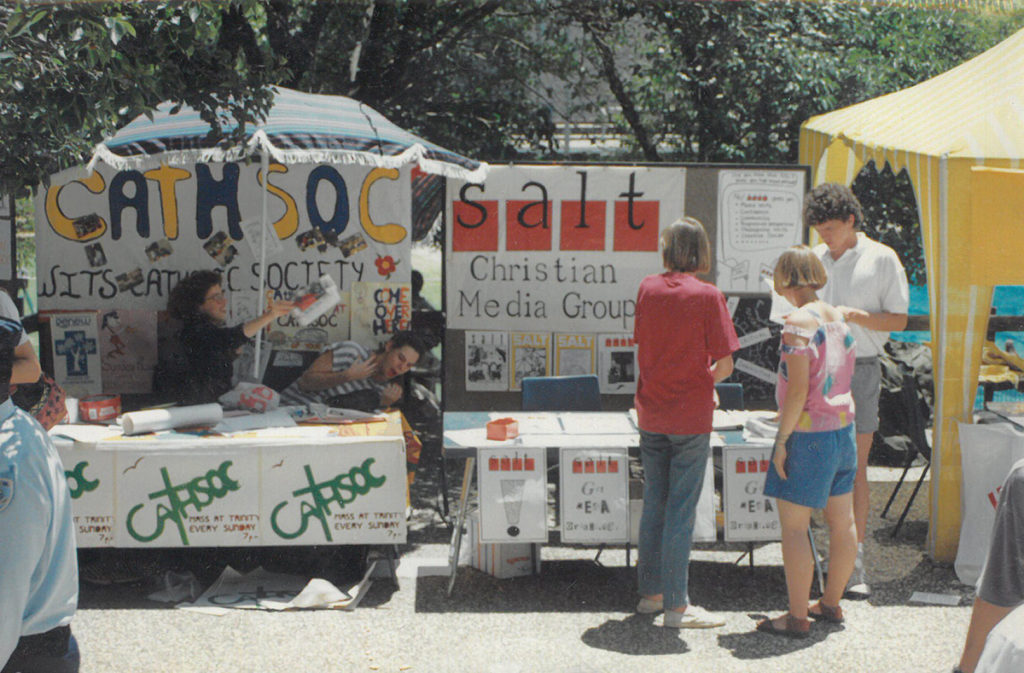
YCS is slowly, albeit painfully growing in some provinces of South Africa. God willing it will also do in other provinces in future.
Bonke wrote: “I believe YCS is one of the greatest platforms I have come across as it helps one become a better individual, not only for themselves but for the whole world as well.” We should stop talking about young people as “leaders of the future” but acknowledge them as leaders of today and cooperate with them in building the Reign of God here and now. YCS-SA is part of IYCS on the African continent and the globe, cooperating with IYCW, IMCS, other movements and progressive organizations for social justice. Today taking on the trials and jubilations of this world with Fr Nolan, Joseph Cardinal Cardijn, Fr Gutiérrez, Sr Bernadette, Mary of Palestine and the person called Jesus of Nazareth.


